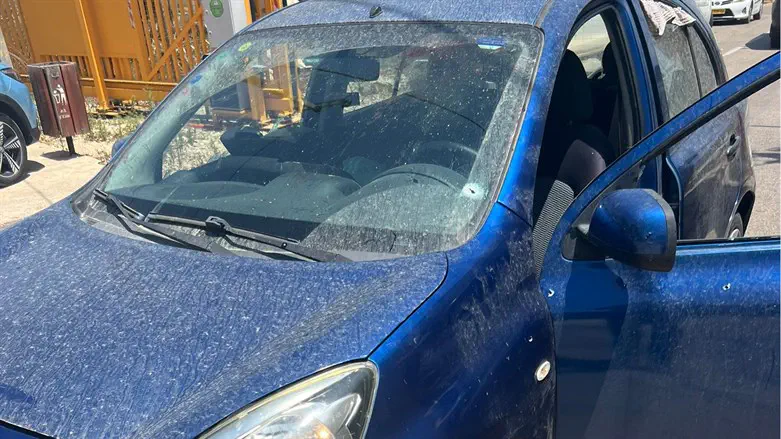
There was a horrifying footnote to last week’s grisly murder of Meir Tamari, the young Israeli father of two small children who was gunned down by Palestinian Arab terrorists.
Tamari was guilty of the crime of driving while Jewish.
Just outside his hometown of Hermesh, terrorists raked his car with gunfire. Bleeding heavily from his wounds, Tamari managed to reach the gates of the community where he and his wife had just finished building their house. Their children, ages one and three, will never know their father.
And now for the footnote. Yossi Dagan, head of the Samaria Regional Council—which oversees Jewish communities in that part of the country—told the few journalists who were interested:
“This terror attack occurred just meters from a checkpoint which, if it were active, would have prevented [it]….If the government of Israel had not caved to international pressure and removed the security checkpoints, including this checkpoint, Meir would be here with us today, and this evening he would once again laugh and play with his little children and his wife Tal.”
When Israel began administering Judea-Samaria after the 1967 war, the Labor government established a number of security checkpoints in the region, in order to catch terrorists before they could strike.
After the signing of the Oslo accords in 1993, Prime Minister Yitzhak Rabin was forced to increase the number of checkpoints, because Oslo gave the Palestinian Authority control over 40% of the territories, thus giving terrorists much greater freedom of movement.
Naturally, checkpoints inconvenience the people who have to be checked. Nobody likes waiting in line, whether at a grocery store, an airport, or a road leading to an Israeli town.
A few years ago, a Fox News journalist named Ami Horowitz decided to investigate just how inconvenient checkpoints are. He hired a Palestinian Arab driver and, traveling in a car with Palestinian Authority license plates, they drove “throughout the 'West Bank'.” How often did Israeli troops interrupt their journey? “We were never stopped,” Horowitz wrote later.
He also wanted to see what it’s like for Palestinian Arabs crossing at the checkpoints that separate pre-1967 Israel from Palestinian Authority-controlled areas.
One was the Qalandiya checkpoint, the last defense line for Jerusalem—the final point at which Israeli soldiers can make sure Palestinian Arab travelers are not carrying bombs, guns or knives.
Horowitz asked three different Palestinian Arabs at the Qalandiya checkpoint how long it typically takes them to get through the line. All three said: “Ten minutes.” One told Horowitz that the amount of time “the soldier checks my ID or my work permit is just one minute.”
Of course, Palestinian Arab terrorists and their cheerleaders find the checkpoints frustrating. Being checked for weapons hampers their ability to use those weapons. So, over the years, they have generated a flurry of articles in the American press about how “humiliating” the checkpoints are.
The Obama-Biden administration responded by pressuring Israel to reduce the number of checkpoints. The Reuters news agency reported in 2009 that Israel was shutting down some of the checkpoints specifically in response to U.S. pressure. “Washington wants Israel to lift army roadblocks and checkpoints and to freeze settlement building as part of a policy that would lead to establishing a Palestinian state,” Reuters explained.
Back in 2008, there were 40 permanently staffed Israeli checkpoints in the territories. Today there are just 13—in a region of more than 2,000 square miles. And some of those 13 “are not always used,” according to the Israeli army. Apparently, the latter category includes the one near Hermesh that could have saved Meir Tamari’s life.
Americans have to endure security checkpoints in every airport and countless office buildings throughout the country. We are required to empty our pockets, take off our coats, turn our laptops on and off, sometimes remove our shoes, throw out our bottles of water, and submit to body scans and searches, among other things. Sure, it’s annoying. But everyone does it, and most people don’t complain about it, because we all know that it saves lives.
It’s painful to realize there was something that could have been done that might have prevented Meir Tamari from being murdered. It only adds to the pain to realize that the actions of the U.S. government may have contributed to that tragedy.
Stephen M. Flatow is an attorney in New Jersey and the father of Alisa Flatow, who was murdered in an Iranian-sponsored Palestinian terrorist attack in 1995. He is author of “A Father’s Story: My Fight for Justice Against Iranian Terror."
